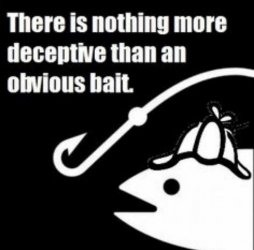The issue is, is that all that information is outdated and is no longer used in the hobby.There has been a modern revolution in fish keeping going on for around 50 years. ( Of which I have been apart of for 45 of them ).
Fish keeping has now been taken over by big business. You are encouraged to buy all sorts of things to improve your ability to keep fish alive and to grow plants. I have been watching this revolution take place.
New ideas come forward all the time which is a good thing. But all of these involve spending more money. You never or very rarely see a new idea that will mean you will spend less at the LFS.
We now vacuum tanks, change more water, add fertilizers for plants, use RO water in tanks, forget about pH concentrate on hardness, buy expensive test kits, get larger tanks with fewer fish, change our substrate for sand and the list goes on.
What I would ask everyone of you to do before you go and spend the next $50 at the LFS is to go to your second hand book store or online and buy a few old Aquarium Handbooks with that $50 and read them.
Then have a look at what you are doing. Fish keeping has been around along time and is very simple if you just follow some basic rules.
I get that back then aquarists just used the trial and error method, but that’s a bad method to live by.
As far as this goes, we buy “expensive” test kits so that our fish can live the healthiest possible life, and so that we don’t have any pH imbalances.buy expensive test kits
I’m not sure what test kits you’re buying, but most liquid color-match kits only cost around $15 each. (Or if you get the API kit, it’s around $30. However, the API is very inaccurate compared to other brands, such a Salifert)
The real expensive test kits come into play in reefing. In order to get ultra accurate results (which is what you need in a reef tank) you will have to spend $50 per test for a digital reader that will give you the accuracy that you need.
This is because you simply can’t buy the absolute minimum and expect it to work out! You get what you pay for, in the sense of equipment. If you buy a cheap and used tank off of Craigslist, you can’t expect it to be top notch quality and hold water forever. You can expect it to leak or shatter because of how used/old it is.Fish keeping has now been taken over by big business. You are encouraged to buy all sorts of things to improve your ability to keep fish alive and to grow plants. I have been watching this revolution take place.
Same thing goes for equipment. If you buy a cheap heater (or buy a cheap used heater) you can’t expect the same amount of performance as compared to a $50 or $100 heater. Is the other more expensive? You bet it is. Will it last you longer and give you better results? Yes.
The “right decision” is based on research that has been done over the past 5-10 years. We can’t trust all that information all the way back in the 70’s-80’s, because they simply didn’t know what we knew now. Nitrogen cycle? They had never heard of it. LED lights? Nope. Digital water testers? A dream.So my point is asking the members of this forum to go back and reevaluate what they are doing. Have a look at what was being done 40 years ago and compare it to today. Just make sure you are making the right decisions.
You sometimes need medication. Sure, it might be expensive, but it can help your fish. You can expect everything to be solved from “easing the temperature of the water for 10 days” or “adding salt”. Those are the ways of the past, and need to be forgotten about.You did say "buying a chemistry lab full of stuff". Why?. And that you miss the simpler times. Why?.
——
And what’s your opinion on food? Should we just go back to the primitive days where we only feed live food, or we feed unhealthy bulk order flakes?



